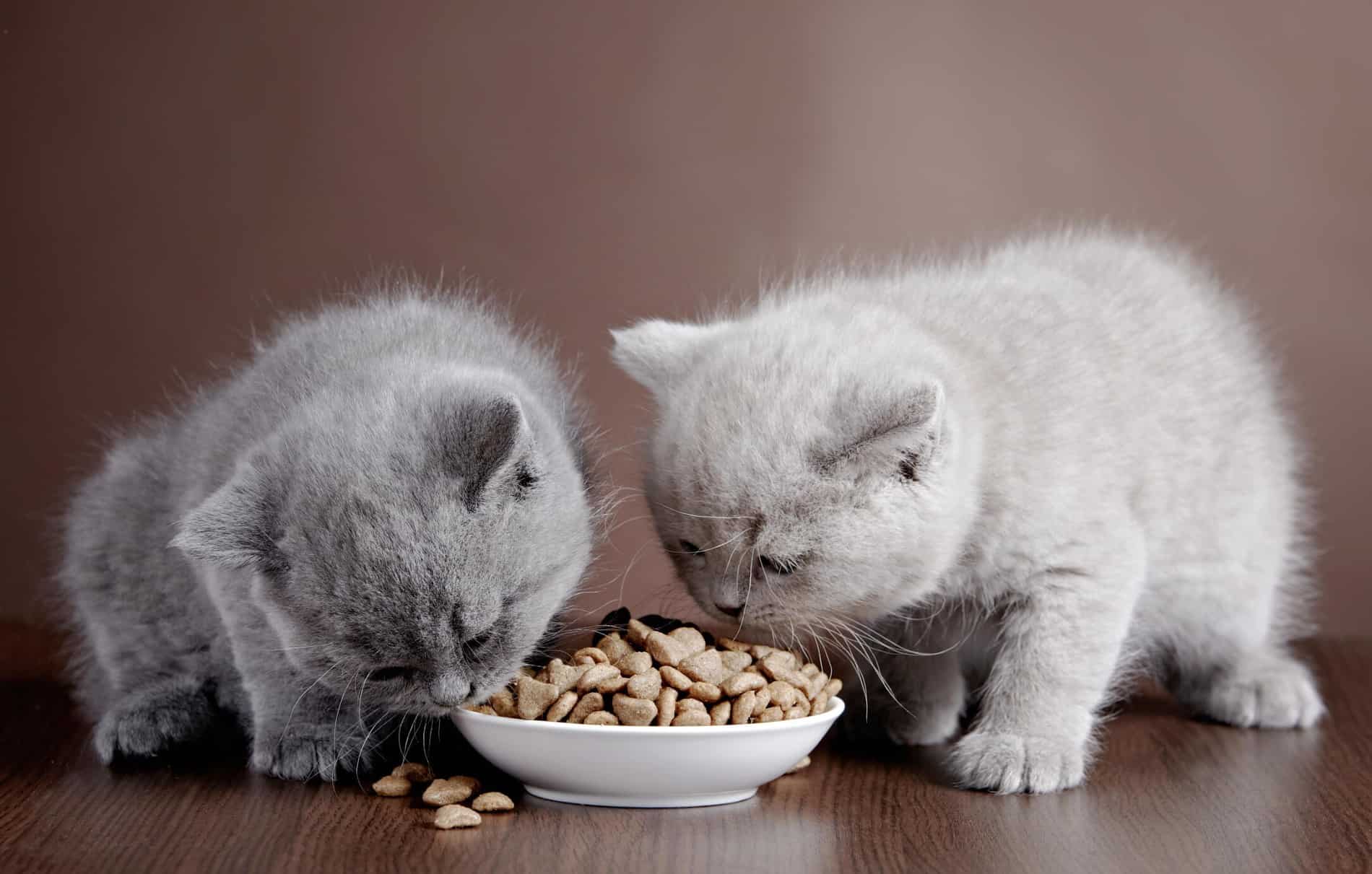Proper nutrition is crucial for kittens as they embark on the early stages of life. The right cat food supports their rapid growth, strengthens their immune system, and lays the groundwork for a healthy future. This guide explores how to choose the best cat food for kittens, focusing on their unique dietary needs.
Understanding Kittens’ Nutritional Requirements
- High-Calorie Diets: Kittens grow rapidly and need calorie-dense diets to fuel their development. These diets support their high energy levels and help in building strong muscles and bones.
- Essential Nutrients: High-quality protein is paramount for growth. Calcium and phosphorus are necessary for bone development, while essential fatty acids like DHA aid in brain and vision development.
Evaluating Kitten Food Ingredients
- Quality Protein Sources: Look for foods where the primary ingredient is a high-quality animal protein, like chicken, fish, or turkey, essential for healthy growth.
- Vitamins and Minerals: A balanced intake of vitamins A, D, E, and B-complex, and minerals like iron and magnesium, is crucial. These support various bodily functions, from vision to immune health.
- Avoiding Harmful Ingredients: Artificial additives, excessive fillers, and by-products should be avoided as they can be harmful to a kitten’s health.
Top Cat Food Brands for Kittens
- Royal Canin Kitten Formula
- Pros: Specifically formulated for kittens, easy to digest, supports immune health.
- Cons: Higher price point, contains grains.
- Specific Product: Royal Canin Feline Health Nutrition Kitten Dry Cat Food.
- Hill’s Science Diet Kitten
- Pros: Clinically proven antioxidants, and high-quality protein.
- Cons: Some formulas contain by-products.
- Specific Product: Hill’s Science Diet Dry Kitten Food, Chicken Recipe.
- Blue Buffalo Wilderness Kitten
- Pros: Grain-free, high in protein, DHA for cognitive development.
- Cons: May be too rich for some kittens’ digestive systems.
- Specific Product: Blue Wilderness High Protein Grain Free Kitten Dry Cat Food.
- Purina ONE Healthy Kitten Formula
- Pros: High in protein, includes DHA, affordable.
- Cons: Contains corn and wheat.
- Specific Product: Purina ONE Healthy Kitten Formula Dry Kitten Food.
- Wellness Complete Health Kitten Formula
- Pros: All-natural ingredients, no meat by-products, grain-free.
- Cons: Premium pricing.
- Specific Product: Wellness Complete Health Natural Grain Free Dry Kitten Food.
Feeding Guidelines for Kittens
- Portion Sizes and Frequency: Kittens require frequent feeding, typically three to four meals per day. Follow the feeding guidelines on the cat food packaging, adjusting as needed based on the kitten’s growth and activity level.
- Transitioning from Mother’s Milk to Solid Food: Start introducing solid food around four weeks of age, gradually mixing it with kitten milk replacer to ease the transition.
Special Considerations for Weaning Kittens
- Weaning Process: Gradually decrease the amount of milk replacer while increasing the solid food over a few weeks.
- Choosing the Right Texture: Initially, opt for wet food or moistened dry food to make it easier for kittens to chew and digest.
FAQs About Kitten Food
- How long should a kitten eat kitten food? Typically, until they are about one year old when they can transition to adult cat food.
- Wet food or dry food: What’s better for kittens? Both are beneficial. Wet food aids hydration, while dry food is good for dental health. A combination can be ideal.
- How do I know if my kitten is eating enough? Monitor their growth and body condition, and consult a vet if you have concerns about their weight or development.
- Can I give my kitten adult cat food? It’s best to stick with kitten-specific food, as adult cat food may not provide the necessary nutrients for growth.
- What should I do if my kitten doesn’t like its food? Try different flavors and textures, and ensure the food is fresh. If the issue persists, consult a veterinarian.
Conclusion
Choosing the right cat food for kittens is pivotal in supporting their growth and development. High-quality ingredients, appropriate nutrient balance, and suitable feeding practices are key to raising a healthy, energetic, and thriving kitten.

Jane Doe, a veterinarian with over 10 years of experience, combines her deep knowledge of animal health with a passion for pet welfare at PetsPonder.com. With a DVM degree and a commitment to the latest in veterinary science, Jane Doe offers reliable, compassionate advice to help pet owners make informed decisions for their furry companions.

Leave a Reply